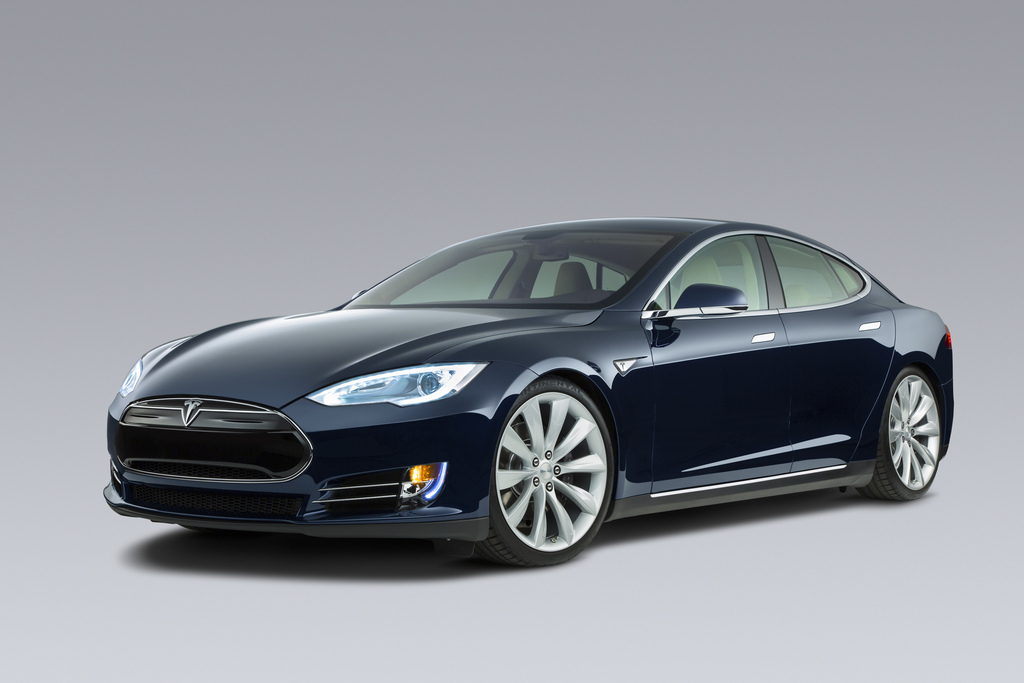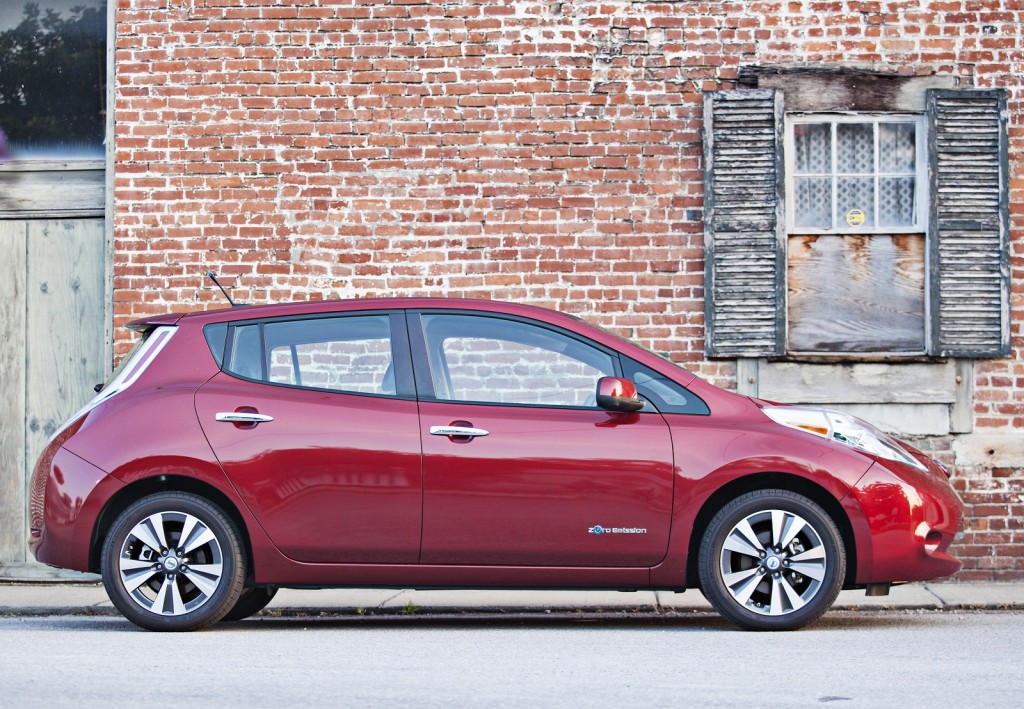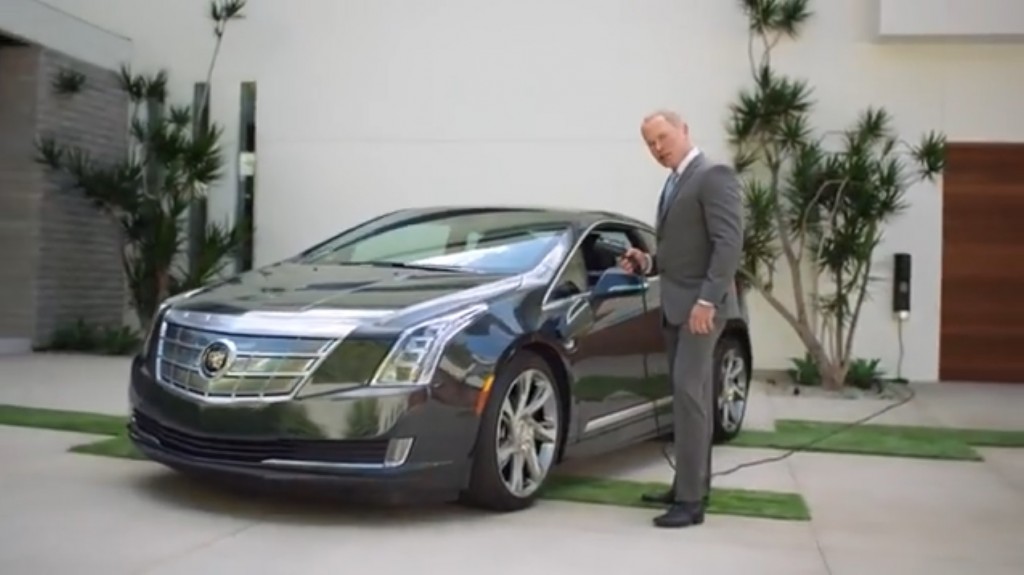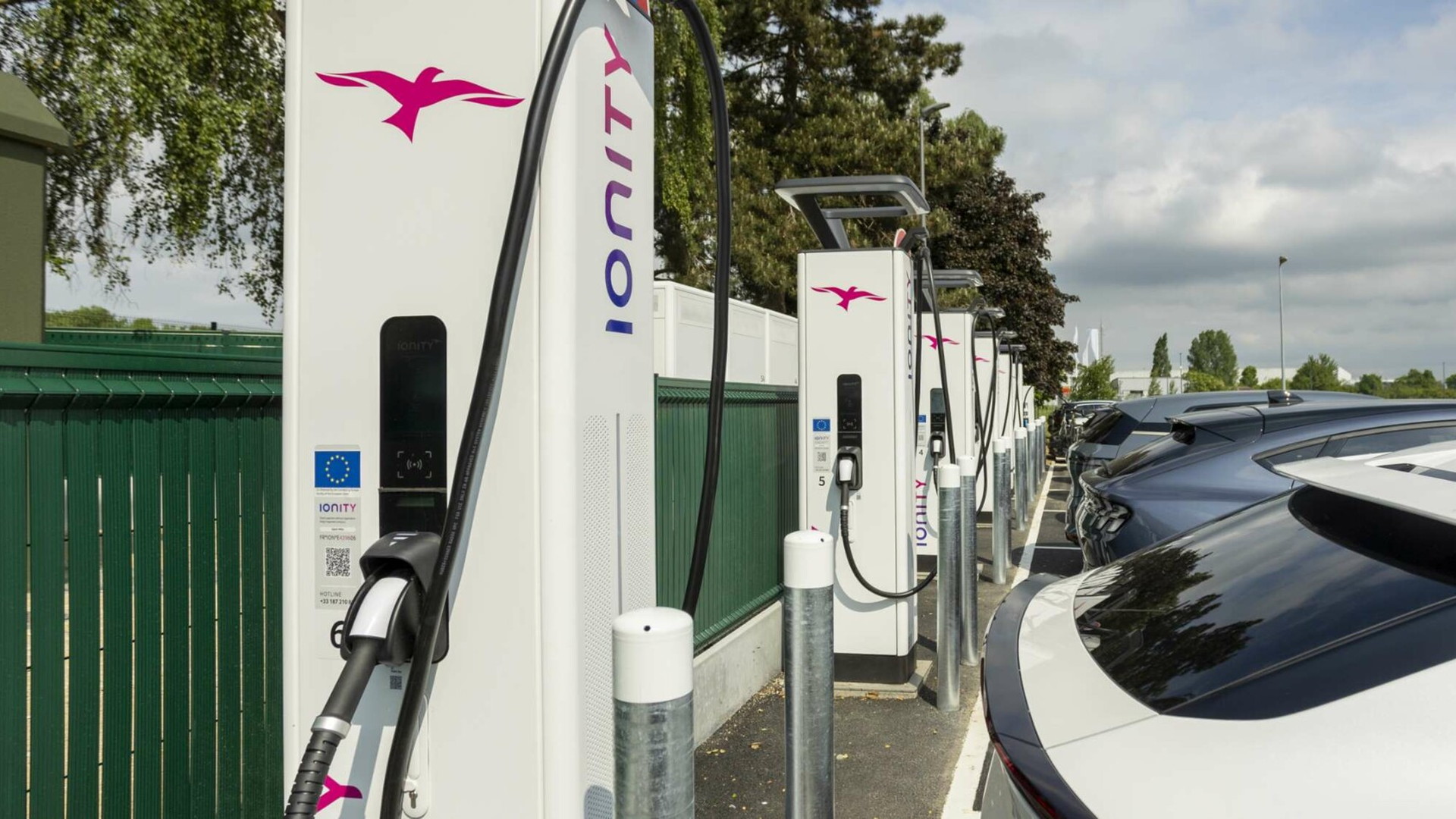
2014 Tesla Model S
Startup electric-car maker Tesla Motors and its sleek Model S luxury sport sedan have generated more media coverage over the last three years than many well-established car companies.
But at least some of that coverage is woefully, hilariously out of touch with the actual world of real people buying real cars to meet real needs and satisfy complex and varied motivations.
MORE: Who Buys Plug-In Electric Cars, And Why? CA Report Explains It All For You
Some of the worst offenders are financial analysts, and some of the oddest suggestions come when they consider the vehicles a Tesla Model S may compete with.
The tendency to bucket all "alternative powertrains" into one undifferentiated group--not to mention different body styles and car sizes--often leads to some truly hilarious suppositions.
Q7 TDI vs Model S ?!?!?
Take, for example, a post last month on the investor website Seeking Alpha by someone named Logical Thought, apparently representing Stanphyl Capital Management LLC:

2013 Audi Q7 TDI
In the luxury segment (competing directly with Tesla's Model S) is the new Audi Q7 TDI, a "clean diesel" model that goes 0-60 in 5.5 seconds, gets 38 mpg on the highway, has all-wheel drive (unlike the Model S) and (including the Tesla's tax credits and assuming a standard dealer discount on the Audi) sells for at least $10,000 less than a comparably equipped Model S85 which actually can't be "comparably equipped" as Tesla doesn't offer many of the Audi's features.
Where to begin?
One place would be vehicle type. The Audi Q7 is a very large, tall, heavy sport-utility vehicle, whereas the Tesla Model S is a five-door sport sedan (or technically hatchback).
The Q7 might compete with the upcoming Tesla Model X all-wheel-drive crossover utility vehicle, but very few people cross-shop sedans with SUVs.
Sedans compete with each other; crossover and SUVs compete with each other. The uses are very different.
[UPDATE: Our astute commenter Steve Adams suggests that "Logical Thought" has committed a typo, writing "Q7" where he meant "A7". The Audi A7 is a sleek medium- to full-size five-door sport sedan (technically hatchback) offered only with quattro all-wheel drive. This theory is likely confirmed by the A7 TDI's highway fuel-efficiency rating, which is the 38 mpg cited. We feel our confusion is understandable, however, since more than half of Audi's Q7 SUVs are sold with the TDI diesel option. Thanks, Steve!]
Early adopters vs diesels
Then there's the powertrain. Many people buying the Tesla do so precisely because it's electrically powered (and very fast as a result).
MORE: VW Diesel Buyers, Hybrid Buyers: Both Want Fuel Economy, But Beyond That...
Diesels appear to do well in affluent suburbs--in part because many of them are sold by German luxury brands--but tech-obsessed "early adopter" buyers rarely view diesel engines as a huge leap forward in next-generation auto technology.

2014 Tesla Model S
As Volkswagen learned after years of selling diesel successfully, buyers of hybrid vehicles--which occupied the "early adopter" advanced technology slot a decade ago--don't want and won't buy diesels.
(To top it off, the fuel-economy figure is inaccurate: The 2014 Audi Q7 TDI is rated at 28 mpg highway, not 38 mpg. Diesel vehicles are known to overachieve their EPA ratings, but "gets 38 mpg on the highway" is at best anecdotal, and at worst flat-out wrong.)

2014 Nissan Leaf
Not the Leaf either
Other industry analysts have variously suggested that the Tesla Model S competes with the Nissan Leaf (which has one-third its range), the Chevrolet Volt (a four-seat compact car), or upcoming plug-in hybrids from Audi, BMW, Mercedes-Benz, and Porsche (whose electric ranges top out at about 25 miles).
Another example: A reviewer in The Detroit News suggests that the Tesla Model S competes with the new 2014 Cadillac ELR, a small range-extended electric luxury coupe.
Both cars have plugs, granted, but that rather seems like saying a Chevy Cruze Diesel compact sedan competes with an Audi Q7 TDI large luxury SUV because they both have diesel engines.
The Model S is a mid-size to large five-seat car with four doors; the ELR is a compact two-door coupe--one for which it's quite challenging (although not entirely impossible) to insert two adult-size human beings into the back seat.

Frame from 2014 Cadillac ELR video on YouTube, with actor Neil McDonough
Moreover, the Model S has no range-extending combustion engine--and the Cadillac has no access to DC fast-charging like that of Tesla's Supercharger network.
No direct competitors
In the end, one of the things that has likely contributed to the sales success of the Model S thus far has been its unique position.
There's no other battery-electric car with rated ranges over 200 miles. There's no other electric car as large as the Model S. And there's arguably none as striking-looking, to the point where it can be evaluated solely as a sleek, fast, sporty luxury sedan--and not as an electric car at all.
That combination of attributes is why the Tesla Model S has rattled the German luxury makers more than some of them let on--especially when the German car magazine Auto Motor und Sport gave the Tesla a rave review.
However, if there's actually anyone out there who did cross-shop an Audi Q7 TDI full-size diesel sport utility against an all-electric Tesla Model S luxury sedan ... please contact us.
We'd like to interview you.
_______________________________________________













